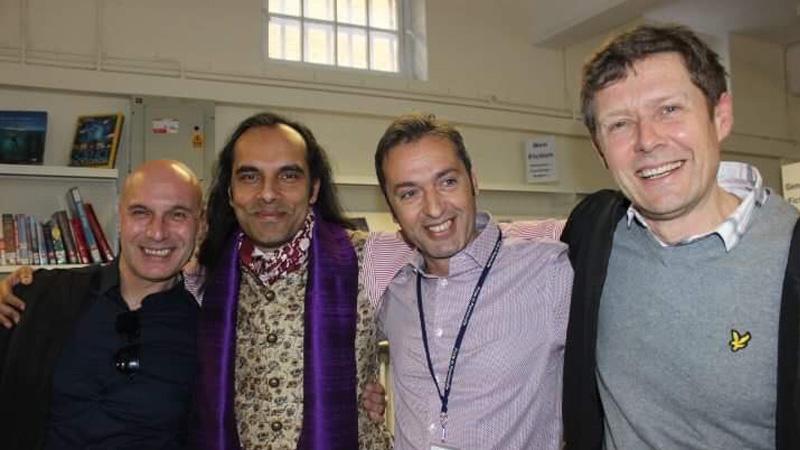The Making Links project is a partnership between the University of Westminster and HMP Pentonville, a men’s prison and young offender institution in London, where students from each establishment study together.

The project was an idea developed in January 2016 by Dr Andreas Aresti and Dr Sacha Darke, Senior Lecturers in Criminology, in partnership with Jose Aguiar, prison educator at HMP Pentonville. The project creates a direct connection between prisons and universities through higher education.
The module, which is part of the Criminology BA Honours course, typically runs in semesters one and two for level three students at HMP Pentonville, and level six students studying Criminology at the University. For ten weeks, ten students from the University and from HMP Pentonville have a deep, extended experience with a group of people, ostensibly unlike themselves, to study together.
This semester, the project was going to be cancelled due to the coronavirus pandemic as universities moved to online delivery and prisons are in lockdown. However, as HMP Pentonville students would be denied the opportunity to study and take part in this invaluable higher education experience, Aguiar, Dr Aresti, and Dr Darke came together to think about a creative and innovative way of delivering the course.
Aguiar worked closely with HMP Pentonville governors and prison staff to create operational conditions for the course to be delivered remotely on Zoom. The course successfully started virtually on 21 October and will run until 16 December.
This semester, eight HMP Pentonville students and, for the first time, two prison officers are attending the course. Dr Aresti and Dr Darke deliver the lectures, and eight recent graduates from the course, who were on the project last year, join the weekly remote sessions.
Talking about the project, Dr Andreas Aresti said: “The opportunity to be able to continue the project despite the lockdown measures illustrates what can be achieved when you have the support and backing of the prison governors and prison staff. To be able to continue the project virtually is a remarkable achievement, given that prisoners do not have internet access, and typically, internet access in prisons, comes with many restrictions and complex security measures.”
Jose Aguiar said: “This is a historical moment for education in prison. Prisons need to follow what other educational institutions have been doing and provide their residents access to education opportunities in these challenging times”.
Ian Blakeman, HMP Pentonville Governing Governor, added: “The pandemic has had the unintentional benefit of allowing us to push through many things that before would have been stopped. The use of an internet enabled course for prisoners is just one of those examples and I hope that this is just the start of us doing more activities like this.
“I also saw this as a fantastic opportunity to facilitate some joint work between staff and prisoners. The idea that they can learn together is a great leveller and I am sure will go a long way to improving relationships within the prison.”
The University of Westminster is also inviting funders to support the Prison University Partnerships project, which supports people in prison who are disadvantaged by a lack of higher education provision from UK Universities.
Learn about Criminology and Sociology courses offered at the University of Westminster.


